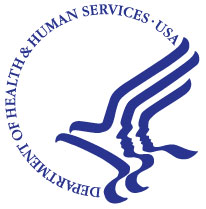07192024 - OMB Non-Substantive Change Request - SCTOD - Fall 2024 - CLEAN
07192024 - OMB Non-Substantive Change Request - SCTOD - Fall 2024 - CLEAN.docx
Stem Cell Therapeutic Outcomes Database
07192024 - OMB Non-Substantive Change Request - SCTOD - Fall 2024 - CLEAN
OMB: 0915-0310


5600 Fishers Lane
Rockville, MD 20857

DATE:
TO: Daniel Cline, OMB Desk Officer
FROM: Joella Roland, HRSA Information Collection Clearance Officer
______________________________________________________________________________
Request: The Health Resources and Services Administration (HRSA) Division of Transplantation requests approval for non-substantive changes to the Stem Cell Therapeutic Outcomes Database (SCTOD) Collection (OMB 0915-0310 expiration date 08/31/2025).
Purpose: The purpose of this request is to request minor revisions to the pre-transplant data collection to maintain current and effective data collection. This memo explains the changes and supporting rationale.
Changes: HRSA is requesting OMB approval to make minor changes to the pre-transplant data collection. The request is to revise seven pre-transplant variables to include updates to the classifications of diseases found in response options as suggested by the World Health Organization (or similar international consensus organizations) and reflect the feedback from experts in the transplant community. These changes include new response options, and updated disease nomenclature for existing response options. While we are adding some response options, the number and content of questions are not increasing. Individual respondents will only answer one or two of these questions with updated response options. The revised response options will lead to more accurate information. See the “Change Summary” tab of Attachment 1, rows 2-8, for more details.
“Specify Myelodysplastic syndrome, unclassifiable (MDS-U)” was asked twice during pre-transplant information collection; the first time it was asked in reference to the initial diagnosis of MDS, and the second time it was asked in reference to potentially transformed MDS. Both questions will be removed from the form entirely. Per recommendations from the World Health Organization (or similar international consensus organizations), this disease categorization is obsolete. See the “Change Summary” tab of Attachment 1, rows 9-10 for more details.
Time Sensitivity: The SCTOD data collection changes must be completed in a timely manner to fulfill C.W. Bill Young Cell Transplantation Program requirements. These changes are considered non-substantive. Approval of these changes is needed by August 15, 2024, to implement the changes in the data collection system during the scheduled Fall 2024 release. If this timeline is not met, the next release of data collection forms is scheduled approximately three months later.
Burden: The changes requested to update disease classifications/nomenclature only affect response options for seven questions without the addition of new questions. Although response options were updated for seven separate questions, individual respondents will only complete one or two of these questions depending upon the recipient's disease. These changes may improve response accuracy and clarify the choices for respondents. They will reduce the need to provide write-in responses and will not affect the response burden. Therefore, the changes are non-substantive and do not substantially change the estimated reporting burden for patients with these indications.
The removal of two questions is expected to reduce the burden slightly, but not significantly enough to adjust the burden hours.
SUMMARY OF PROPOSED NON-SUBSTANTIVE CHANGES FOR STEM CELL THERAPEUTIC OUTCOMES DATABASE VARIBLES.
Details can be found in Attachment 1 (complete spreadsheet of data collection to support the SCTOD). Table 1 below shows the change in red.
Item ID |
Information Collection Domain Sub-Type |
Information Collection update: |
Proposed Information Collection Data Element (if applicable) |
Proposed Information Collection Data Element Response Option(s) |
Rationale for Information Collection Update |
PRE044 |
Disease Classification |
Change/Clarification of Response Options |
Did AML transform from MDS or MPN? |
no, |
Capture data accurately |
PRE047 |
Disease Classification |
Change/Clarification of Response Options |
Specify condition |
|
Be consistent with the current clinical landscape and improve transplant outcome data. |
PRE137 |
Disease Classification |
Change/Clarification of Response Options |
Specify condition |
Aplastic
anemia |
Be consistent with the current clinical landscape and improve transplant outcome data. |
PRE222 |
Disease Classification |
Change/Clarification of Information Requested and Response Option |
Specify condition |
Aplastic
anemia, Germline
CEBPA variant (CEBPA-associated familial AML), |
Be consistent with the current clinical landscape and improve transplant outcome data. |
PRE365 |
Disease Classification |
Change/Clarification of Information Requested and Response Option |
Specify the lymphoma histology |
Hodgkin
Lymphoma |
Be consistent with the current clinical landscape and improve transplant outcome data. |
PRE477 |
Disease Classification |
Change/Clarification of Information Requested and Response Option |
Specify histiocytic disorder classification |
Diseases
of immune dysregulation, Familial Hemophagocytic
Lymphohistiocytosis (FHL) |
Be consistent with the current clinical landscape and improve transplant outcome data. |
PRE464 |
Disease Classification |
Change/Clarification of Information Requested and Response Option |
Specify disorder of immune system classification |
Severe
Combined Immunodeficiencies |
Be consistent with the current clinical landscape and improve transplant outcome data. |
PRE218 |
Disease Classification |
Deletion of Information Requested |
Specify Myelodysplastic syndrome, unclassifiable (MDS-U) |
|
Reduce burden: data no longer relevant |
PRE246 |
Disease Classification |
Deletion of Information Requested |
Specify Myelodysplastic syndrome, unclassifiable (MDS-U) |
|
Reduce burden: data no longer relevant |
Attachments:
Current SCTOD Information Collections – Fall 2024
| File Type | application/vnd.openxmlformats-officedocument.wordprocessingml.document |
| File Title | change memo |
| Author | Windows User |
| File Modified | 0000-00-00 |
| File Created | 2024-07-26 |
© 2026 OMB.report | Privacy Policy